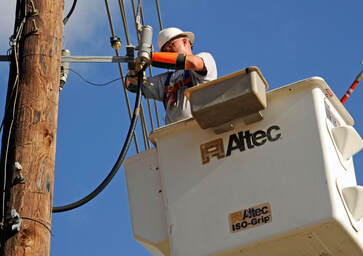Archives
May 2020
Categories
All
|
Back to Blog

Power outages and interruptions happen. If they happen often enough or for long enough you could be eligible for compensation from DTE and Consumers Energy. The Michigan Public Service Commission (MPSC) Service Quality and Reliability Standards requires utility companies to compensate customers for losses associated with power outages. Rules regarding outage service credits and eligibility requirements can be found in the MPSC’s Service Quality and Reliability Standards. These standards provide customers a $25 credit upon request if the utility’s investigation of your request determines you have experienced a qualifying outage.
There are 3 types of available credits:
An investigation will be conducted and a decision will be rendered within 30 days. Your claim will be summarily denied if:
0 Comments
Read More
Your comment will be posted after it is approved.
Leave a Reply. |
MONEYSMARTLIFE.ORG EMPOWERING SUSTAINABLE FINANCIAL WELL-BEING IN WORKING CLASS FAMILIES

 RSS Feed
RSS Feed

